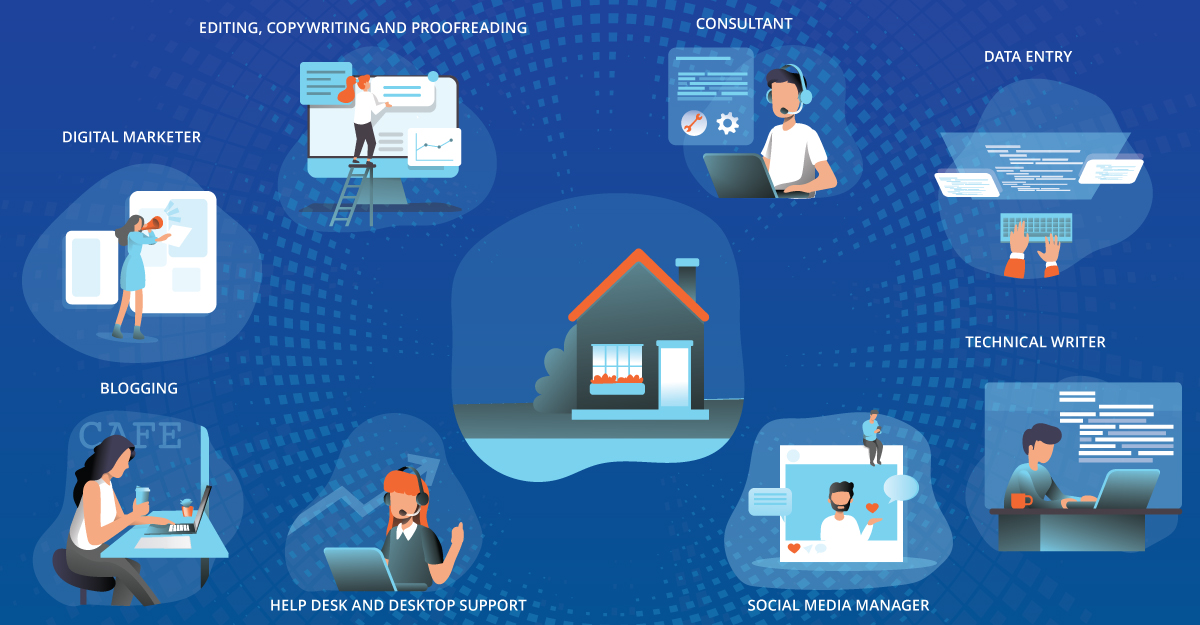The future of digital jobs: Which skills will be most important for companies?
Published

Digital skills have never been more important in the workplace, and many HR managers and international employers see these skills as the foundation of the future workforce. The digital workplaces of the future require essential digital skills for communication and collaboration between companies and professionals working anywhere in the world.
If you're considering a new job, early in your career, or want to improve your skills in the digital industry, you need to know which skills are most important. This knowledge is necessary to ensure that you are attractive to potential employers. Without the right technical skills, you will have a hard time competing for the best jobs in an increasingly international job market.
We researched 500+ employers in digital or technology industries such as software development, digital marketing, AI and VR to help you learn more about the future of the industry.
The aim was to find out which digital skills are most in demand and how the digital age will influence the future world of work.
Social media is the most in-demand digital skill

Those : investintech.com
In 28% of the companies examined, social media was the most important digital competence.
Mastering social media requires creativity, strategic thinking and a clear understanding of how to effectively convey messages to large audiences via digital media. Communication skills, crisis management, and knowledge of brand strategy help aspiring tech employees build a foundation for fit.
Technical knowledge of major platforms such as LinkedIn, Instagram, Facebook, YouTube and TikTok can be crucial depending on the nature of a particular market or brand. Employees with social media skills can help companies reach new customers, increase brand visibility, and improve customer loyalty.
The second most important digital skill overall is digital marketing (27%). This ability has a slightly broader impact than social media. Typically, digital marketing competency requires a strategic understanding of content creation, SEO, PPC, email marketing, data analysis, and the use of all of these channels depending on a company's goals and resources.
These capabilities help businesses generate leads, increase demand, and attract visitors. With the right strategy and execution, digital marketing skills help people across functions understand how their role can drive conversions more effectively.
Software development as the most important digital profession of the future
With software development already the third most important qualification today, our survey respondents say this will be the most important digital job of the future, followed by software engineers and workplace managers.

Those : istockphoto.com
Global demand for software engineers and programmers has steadily increased in recent years, and as digital innovation drives constant change, workplace managers play an essential role in supporting other employees in managing change within organizations.
Below are the job titles that the companies surveyed believe will be important to companies in the future:
- Software Developer
- Software Engineer
- Workplace Manager
- Digital Workplace Program Director
- Head of Automation
- Remote Control Center Supervisor
- Head of Electronic Workplaces
- Machine Learning Engineer
Look out for innovation-focused jobs such as Head of Automation and Machine Learning Engineer, which are rated as important for the future. As technology advances, companies are always looking for ways to improve efficiency and build a stronger platform for scaling.
Tools and technologies that could set you apart from other applicants
With more than a fifth (21%) of companies not offering technology training, there is an opportunity for the candidate to differentiate themselves by bringing this experience into a new job and company.
The job market is already highly competitive, and with easier access to global employment and the transition to remote work, employers are widening the net to search for the world's best talent. If you already have knowledge of relevant tools used primarily in digitally oriented companies, you can stand out from other applicants.
We also looked for the most commonly used digital tools in the tech industry. The most commonly purchased tools are listed below:
- Adobe Creative Suite
- Google Workspace
- Canva
- Yes
- Slack
- Loom
- Miro
- InVision
- Sketch
- Figma
- Gitlab
- Mural
- Quixy
- Notion
- Prezi
Knowing Adobe Creative Suite could give you an advantage in an interview. With so many companies adopting remote and asynchronous work in their operating model, it's no surprise that digital communication tools like Slack, Gmail and Loom are listed in the top 10.
What can employers do to help their employees build digital skills?

Those : istockphoto.com
Technology is evolving rapidly, and the technology packages used by hybrid and remote teams can be very large and complex. This means that employers also have a responsibility to support their employees in improving their digital skills, especially as some skills may be specific to the company's workflows.
Growth-focused employers and HR teams can consider the following four practical tactics to help employees learn digitally.
- It may seem obvious, but internal training should always be a top priority. A quarter (26%) of employers surveyed do not provide technology training, and while many digital tools can be self-explanatory and provide useful self-help guidance, you need to monitor and measure the effectiveness of any new tool or program introduced into your organization. If your team is encountering difficulties, consider creating internal training modules or on-demand demos to give new users the skills they need to succeed.
- Considering that many companies now offer remote work options, you should also consider virtual training options. Just because an employee can't be present in person doesn't mean they should miss out on learning opportunities. Make sure you consider virtual training as part of your remote work policy and promote an inclusive workplace culture.
- Not everyone learns and works the same way, so you should give your employees some flexibility in the tools and technologies they use. Many employers give their employees the choice between a Mac and a Windows laptop because they can work more efficiently with one than the other. Some teams and departments may want to use different project management tools to maximize their output and simplify their planning. If this does not negatively impact delivery or profitability, flexibility may be important here.
- Ultimately, growth-oriented companies have a responsibility to ensure that their tools and equipment are safe and up to date. Our research found that almost 30% of employers are still using tools/software that are 11 to 15 years old. As technology has changed rapidly over the past decade, it's worth exploring new tools and techniques that will benefit both your employees and the overall success of your business.
It will come as no surprise that digital skills will continue to be in high demand in the coming years. So while it's important for potential employees to take this into account when looking for new opportunities, it's also important for employers to help both their company and their employees keep up with digital trends.








